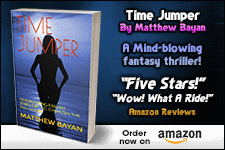The Magnificent 7 - Elements of Story - Conflict and Motive
- by Matthew Bayan
- Sep 19, 2017
- 2 min read

A novel is a dramatic story told dramatically. Drama is not about sitting around having a pleasant chat. Drama involves conflict.
Conflict derives from different characters having different motives.
At the beginning of any good story, we need to find out what the protagonist wants. What is the unanswered question or desire that will drive that main character through the story? What does Frodo want at the beginning of The Lord of the Rings? What does Clarice Starling want at the beginning of The Silence of the Lambs?
Equally important is the desire of the antagonist. What does Hannibal Lecter want?
For a story to be interesting, we need the desires of heroes and villains to clash. They don’t want the same thing. The further apart their motives are, the better the conflict and the better the drama.
In crafting a story we also need to consider the strengths and weaknesses of various characters. Conflict can be increased if heroes and villains don’t have the same strengths. We can put the hero’s goals in jeopardy if a villain can exploit the hero’s weaknesses and vice versa. Pitting strengths against weaknesses creates effective conflict that provides the energy to fuel the story.
Conflict doesn’t just need to be external between the main character as in hero versus villain or hero versus nature. The most satisfying characters also have internal conflict. I like to use super-heroes for examples because they’re usually clear cut. Let’s take Spiderman. From the very beginning of the comic books and in the first film with Tobey Maguire, what does Peter Parker want? Answer: Mary Jane.
He is thwarted constantly in his attempts to get her to notice him, to talk to him. By whom. Usually by his antagonist, Flash.
When he gets super powers and becomes Spiderman, what does Parker want? Answer: He wants to make up for the death of Uncle Ben. He had the chance to stop a criminal, but didn’t; the criminal goes on to kill Parker’s Uncle Ben.
No matter how many criminals Spiderman catches, he can never expiate his guilt over Ben’s death. Guilt is a great motivator for a character. For Spiderman, look at the huge possibilities for internal conflict his two desires provide. With all his strength, he can’t make headway in attracting Mary Jane’s affections. With all his powers, he cannot turn back the clock and bring back Ben.
If Parker didn’t develop super powers, he wouldn’t be able to chase bad guys. He would never fight the Vulture or the Sandman. Here we see a direct link between his inner and outer conflicts, one powering the other.
If a character’s inner conflicts fuel outer conflicts, you have fiction gold.










Comments